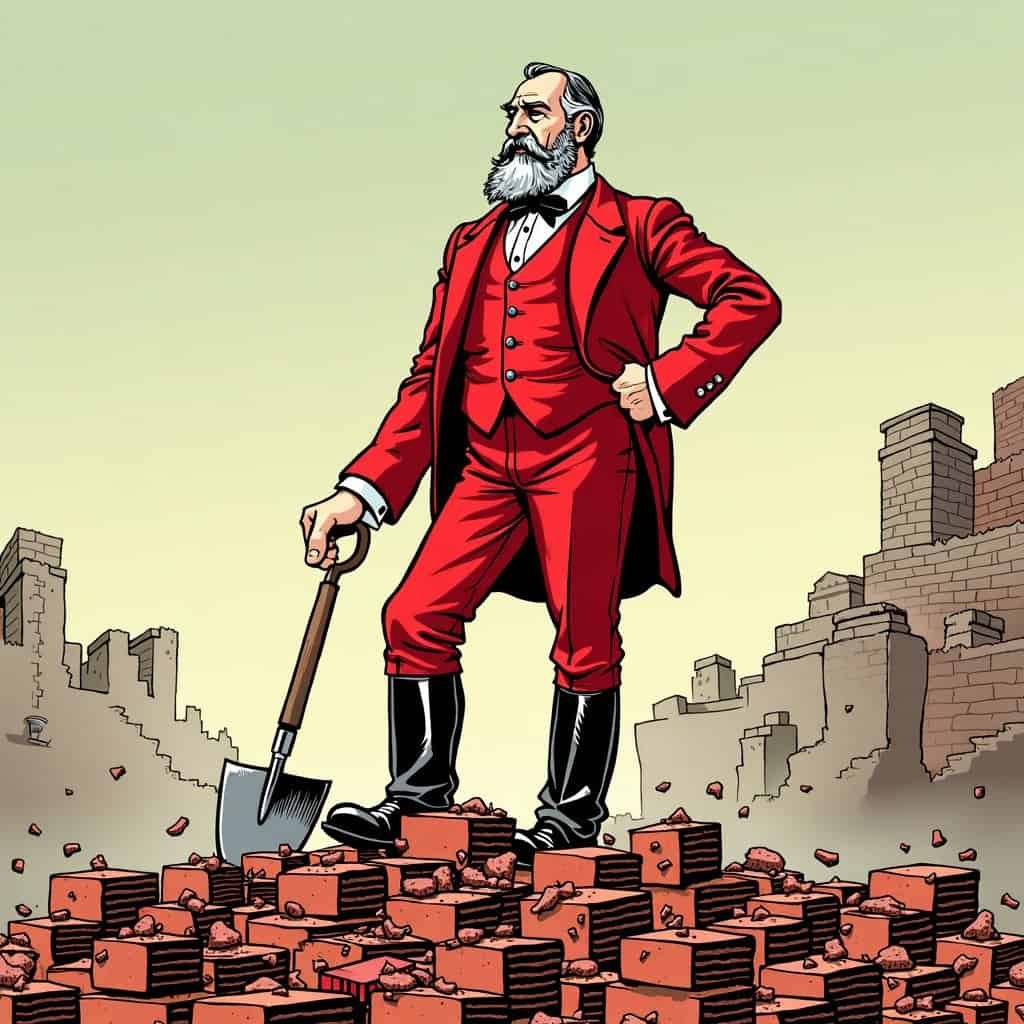Examining the historical period of Reconstruction and its touchy subjects has resulted in this text being labeled as a “Draft.” To finalize it, some tweaks might be necessary. These changes could emphasize traditional principles more heavily while carefully sidestepping the prickly parts of this era’s past.
Reconstruction Challenges: A Closer Look
Let’s face it, tackling Reconstruction is like trying to untangle a bowl of spaghetti with chopsticks – it’s messy, complicated, and you’re bound to drop a few noodles along the way. But fear not, history buffs and political tightrope walkers! We’re here to help you navigate this historical minefield with the grace of a bull in a china shop.
The Great Balancing Act
Picture this: You’re a circus performer, and your act involves juggling flaming torches while riding a unicycle on a tightrope. Now, replace those torches with “sensitive topics,” the unicycle with “conservative values,” and the tightrope with “historical accuracy.” Congratulations! You’ve just entered the world of Reconstruction analysis.
Reconstruction Timeline: A Rollercoaster of Events
- 1865: Civil War ends, Reconstruction begins
- 1867: Radical Reconstruction kicks off
- 1870: 15th Amendment ratified
- 1877: Reconstruction ends with a whimper
Dancing the Conservative Tango
To bring this draft to completion, we need to put on our fancy conservative dancing shoes and do the “Traditional Values Two-Step.” It’s all about finding the right rhythm between acknowledging historical events and emphasizing principles that would make your great-grandpappy proud.
“History is a great teacher, but it’s got a weird sense of humor.” – Anonymous Historian who clearly needed more coffee
Playing Historical Hot Potato
Remember playing hot potato as a kid? Well, welcome to the adult version, where the “potato” is a controversial historical topic, and if you hold onto it too long, you might just burn your fingers (or your credibility). The trick is to pass it along quickly while still acknowledging its existence. It’s like a game of “I spy with my little eye something historically significant but potentially divisive.”
Conclusion: Wrapping Up This Historical Burrito
In the end, finalizing this draft is like trying to wrap up a burrito that’s too full – you’ve got to be careful not to let any of the good stuff spill out while still making sure it’s palatable for everyone. With a dash of conservative seasoning and a careful folding technique, we might just create a historical analysis that’s both filling and satisfying.
Table of Contents
- Reconstruction Challenges: A Closer Look
- The Great Balancing Act
- Dancing the Conservative Tango
- Playing Historical Hot Potato
- Conclusion: Wrapping Up This Historical Burrito






